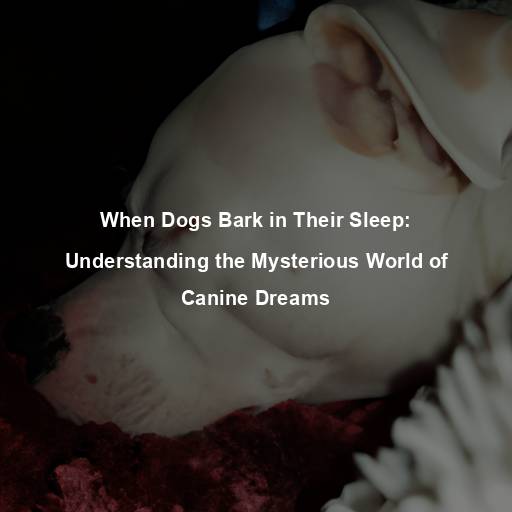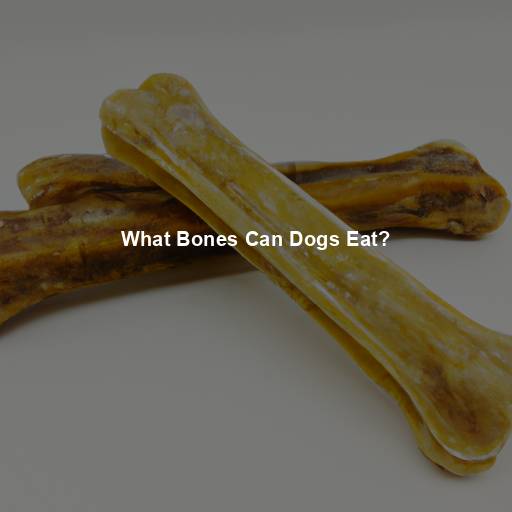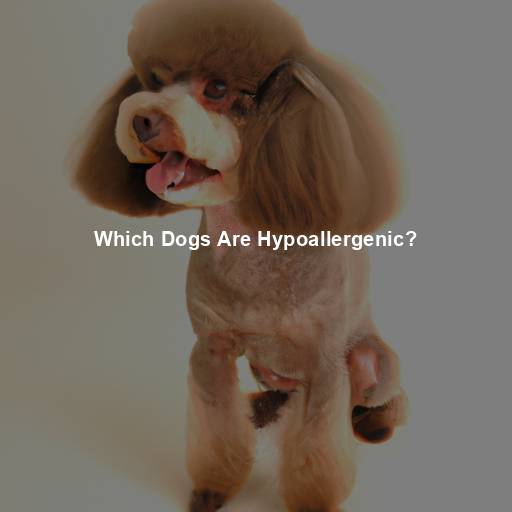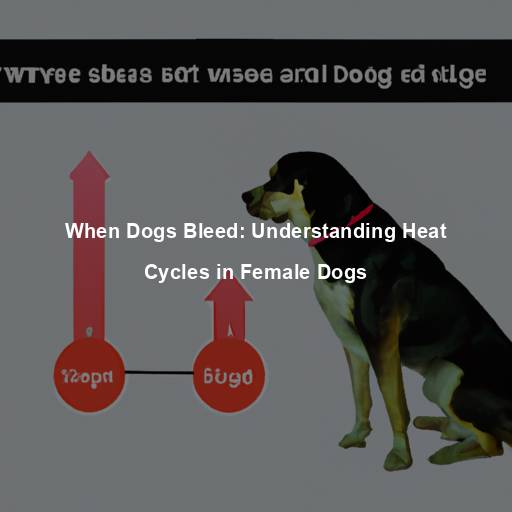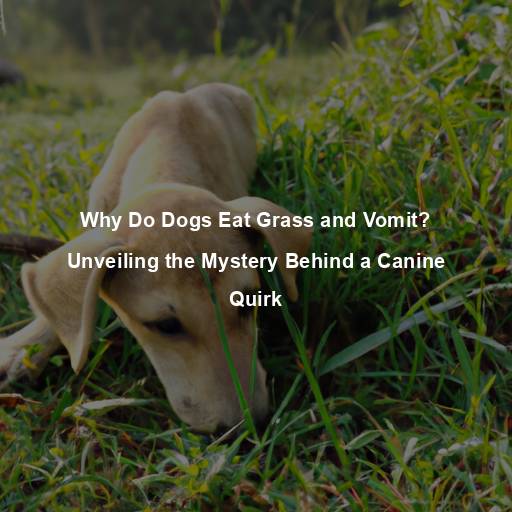Why Do Dogs Eat Poop?
Last Updated on November 20, 2023 by Evan
Contents
- 1 Understanding the Curious Behavior of Dogs
- 1.1 The Scavenger Instinct: A Remnant of Their Ancestry
- 1.2 Nutritional Deficiencies: Seeking Missing Nutrients
- 1.3 Attention-Seeking Behavior: Seeking a Reaction
- 1.4 Boredom and Lack of Stimulation: Finding Entertainment
- 1.5 Stress and Anxiety: A Coping Mechanism
- 1.6 Curiosity and Exploration: Investigating the World
- 1.7 Reinforcement of Behavior: Learned Response
- 1.8 Health Issues: Underlying Medical Conditions
- 1.9 Nutritional Imbalances: Addressing Dietary Needs
- 1.10 Dietary Modifications: Adding Supplements
- 1.11 Eliminating Access to Poop: Managing the Environment
- 2 Behavioral Approaches to Coprophagia
- 3 When to Seek Veterinary Help
- 4 Preventing and Managing Coprophagia
- 5 Seeking Professional Help
- 6 FAQs: Why do dogs eat poop?
Understanding the Curious Behavior of Dogs
Dogs are known for their quirky and sometimes puzzling behaviors. One such behavior that often leaves pet owners scratching their heads is the tendency for dogs to eat poop. Yes, you read that right! Many dogs have been observed engaging in this rather unappetizing habit.
The Scavenger Instinct: A Remnant of Their Ancestry
The curious phenomenon of dogs consuming feces is a perplexing behavior that has puzzled experts for centuries. It is believed that dogs, as descendants of wolves, have inherited ancestral instincts that drive them to scavenge and consume various substances, including poop. This instinctual behavior served as a survival mechanism for wolves, ensuring they obtained essential nutrients from their prey. Despite the domestication of dogs and the availability of balanced diets, some dogs still exhibit this baffling behavior, which is scientifically known as coprophagia.
Nutritional Deficiencies: Seeking Missing Nutrients
There’s a weird phenomenon that has perplexed dog owners for ages – the mystery of why our four-legged friends sometimes have a strange affinity for feasting on feces. But fear not, because there’s a possible explanation behind this bizarre behavior. It turns out that our furry companions could be driven by nutritional deficiencies lurking in their diets. Yes, you read that right – their insatiable poop-eating tendencies might just be their way of trying to fill in the gaps of their dietary needs, like a puzzling nutritional scavenger hunt.
Attention-Seeking Behavior: Seeking a Reaction
It’s no secret that dogs crave human connection and thrive on the attention they receive from their human counterparts. But what happens when our furry friends engage in not-so-desirable behaviors, like the not-so-pleasant act of eating poop? It’s perplexing to think about, but there’s a theory behind it. Some experts believe that dogs may resort to such behavior as a cry for attention, even if it means facing negative reactions from their owners.
Boredom and Lack of Stimulation: Finding Entertainment
Similar to humans, dogs can experience feelings of ennui if they lack an adequate amount of intellectual and physical enrichment in their daily routines. When left to their own devices for prolonged periods or constrained in terms of opportunities for exercise and playful endeavors, canines may develop idiosyncratic behaviors that baffle us, including the consumption of feces. While this peculiar conduct may not align with our preferred notion of amusement, it might serve as a source of diversion for them.
Stress and Anxiety: A Coping Mechanism
As puzzling as it may sound, dogs have their own bewildering ways of dealing with stress and anxiety. One such enigmatic behavior is their tendency to indulge in poop-eating, which might be their peculiar form of emotional release. Just like how humans seek solace in comfort foods during challenging times, dogs turn to this unusual coping mechanism to temporarily alleviate their emotional distress. It’s a perplexing phenomenon that sheds light on the diverse and intricate ways our furry friends navigate their complex emotions.
Curiosity and Exploration: Investigating the World
Dogs are naturally curious creatures, always exploring their surroundings and investigating anything that catches their attention. This inquisitive nature can sometimes lead them to experiment with behaviors that seem bizarre to us. Eating poop might simply be an act of curiosity, as dogs explore the world using their senses, including taste.
Reinforcement of Behavior: Learned Response
Understanding why our furry friends engage in certain behaviors can be quite perplexing. Believe it or not, reinforcement can sometimes occur without us even realizing it. Take, for instance, the curious case of a dog indulging in the seemingly bizarre act of eating poop. Unbeknownst to us, when a dog receives attention or a reward after this peculiar behavior, they may interpret it as positive reinforcement.
Health Issues: Underlying Medical Conditions
While most cases of poop-eating in dogs are behavioral in nature, it is essential to consider underlying medical conditions that could contribute to this behavior. Certain health issues, such as malabsorption disorders, enzyme deficiencies, or parasites, can lead to increased appetite and coprophagia. If you notice a sudden change in your dog’s behavior or an increase in poop-eating, it is crucial to consult with a veterinarian to rule out any underlying medical issues.
Nutritional Imbalances: Addressing Dietary Needs
It’s been widely discussed that deficiencies in nutrition have the potential to be an underlying factor in dogs engaging in the peculiar behavior of coprophagia. To avoid any confusion or consternation, it’s absolutely essential to prioritize a well-rounded diet for your furry companion. Scheduling a thorough consultation with your trusted veterinarian will shed light on the ideal dietary plan tailored specifically to your dog’s unique needs. Whether it’s a meticulously crafted commercial dog food or a carefully curated homemade menu, rest assured that the recommended diet will encompass all the essential nutrients, leaving no room for any perplexing cravings for unconventional delicacies like feces.
Dietary Modifications: Adding Supplements
You know how frustrating it can be when you’re feeding your furry friend a perfectly balanced diet, and yet they still indulge in some seemingly bizarre behavior like coprophagia. It’s a perplexing situation, but fear not! Your trusted veterinarian might have just the solution for you – supplements. Yes, you heard it right – these little powerhouses of probiotics, digestive enzymes, and special vitamins and minerals can work wonders in improving your dog’s digestion and nutrient absorption.
Eliminating Access to Poop: Managing the Environment
One crucial element in tackling coprophagia is to prevent dogs from having access to poop, be it their own or that of other animals. This can be quite a perplexing challenge for many pet owners, especially those with multiple pets in their households. To address this issue, it is essential to maintain a clean living environment for your dog, free from feces. Regularly cleaning up after your furry friend during walks or in the backyard is of utmost importance, as is considering the use of a leash to prevent scavenging behaviors.
Behavioral Approaches to Coprophagia
Positive Reinforcement: Encouraging Desired Behaviors
Training your furry companion with positive reinforcement can have a tremendous impact on their behavior. Instead of dwelling on those undesirable moments of poop-eating, it’s all about redirecting their attention towards more desirable actions. For instance, when your dog resists the temptation and obeys your command to “leave it,” shower them with praise and offer a tasty treat as a token of appreciation. By accentuating the positive and encouraging alternative behaviors, you can effectively steer their focus away from coprophagia.
Distraction Techniques: Diverting Attention
When you notice your dog showing interest in poop, quickly divert their attention to a more appropriate activity or toy. Offering them a treat puzzle, engaging them in a game of fetch, or practicing obedience commands can help redirect their focus and prevent them from engaging in the undesired behavior. By consistently redirecting their attention, you can help break the habit of eating poop.
Environmental Enrichment: Stimulating the Senses
It’s no surprise that dogs, like us humans, can sometimes find themselves stuck in the monotonous world of boredom. However, who would have thought that this dispirited state could lead them down a path as perplexing as coprophagia? Yes, you read that right – the act of indulging in, dare I say it, poop-eating. Fear not, though, for there is a remedy to this peculiar predicament.
When to Seek Veterinary Help
When it comes to our furry friends and their peculiar habits, coprophagia can often leave us scratching our heads in bewilderment. While this behavior may puzzle and perplex us, it is crucial to keep an eye out for any signs that warrant veterinary attention. Should your canine companion exhibit an unwavering dedication to this unusual practice, accompanied by an excess of enthusiasm or concerning symptoms, it is of utmost importance to seek professional assistance without delay. By consulting with a veterinarian, they can navigate the complex landscape of potential underlying medical conditions, offering expert guidance and tailored treatment options to address this perplexing behavior.
Medical Conditions: Identifying Underlying Issues
While coprophagia is often a behavioral issue, it is important to consider the role of underlying health conditions. Certain medical conditions can contribute to increased appetite or abnormal behaviors, including coprophagia. If your dog’s poop-eating behavior is persistent or accompanied by other concerning symptoms, it is crucial to consult with your veterinarian. They can perform a thorough examination and conduct diagnostic tests to rule out any potential underlying medical issues that may be contributing to the behavior.
Nutrient Malabsorption: Addressing Digestive Disorders
Dogs, like us, can sometimes experience digestive disorders or struggles with absorbing all the nutrients they need. This peculiar condition can result in a perplexing behavior: seeking out alternative food sources, such as poop. Fear not, for your trusted veterinarian is there to guide you through this burst of confusion. With their expertise, they may suggest tailored dietary adjustments or even prescribe medications to enhance your furry friend’s digestion and nutrient absorption.
Parasites and Infections: Treating Infestations
When it comes to our furry friends, we want nothing but the best for them. But alas, a lurking menace hides in the shadows – parasites. These pesky little creatures can wreak havoc on our dogs’ digestive systems, causing a whirlwind of discomfort and confusion. Imagine the perplexity of watching your beloved pooch suddenly develop unusual eating habits, like feasting on their own feces.
Medication Side Effects: Assessing Pharmaceutical Influence
If your canine companion’s curious eating habits seem to coincide with the introduction of a new medication, it’s prudent to consult with a veterinary expert about this intriguing matter. As medical substances can unpredictably influence appetite and behavior patterns, an insightful discussion with your veterinarian about the potential consequences of the medication might help clarify the perplexing situation. Following a thorough evaluation, the skilled professional can propose alternative treatment options, such as dosage adjustments or even a switch to a different medication, to potentially alleviate these unexpected behaviors.
Preventing and Managing Coprophagia
Consistent Training: Establishing Boundaries
Consistent training and clear boundaries are essential in preventing and managing coprophagia. Teach your dog basic obedience commands such as “leave it” and “drop it” and reinforce these commands through positive reinforcement training. By establishing clear guidelines and consistently enforcing them, you can discourage your dog from engaging in the behavior. Remember to reward desired behaviors and redirect their attention when they show interest in poop.
Supervision and Leash Control: Monitoring Behavior
Keeping a watchful eye on your furry companion is paramount in deterring them from indulging in the less-than-appetizing habit of coprophagia. Whether on a leisurely stroll outdoors or within the confines of your home, maintaining close supervision and employing a trusty leash will grant you the opportunity to swiftly intervene should their interest gravitate towards fecal matter. At the same time, it’s essential to keep a keen eye on interactions with litter boxes or any other potential sources of poop, especially in multi-pet households. By staying actively vigilant and taking charge of their surroundings, you can effectively curtail the chances of this perplexing behavior.
Environmental Cleanliness: Removing Temptation
Maintaining a pristine living space for your furry friend is crucial in curbing coprophagia, the not-so-pleasant habit of consuming feces. Be diligent in promptly cleaning up after your dog during leisurely ambles or in the confines of your own yard, ridding the surroundings of any tempting morsels. Moreover, if you happen to share your home with feline companions or other four-legged pals, make sure to keep their litter boxes out of reach from your curious canine. By eliminating opportune moments for indulgence, you can significantly deter the act of coprophagia.
Health and Wellness: Balanced Diet and Exercise
Maintaining your dog’s overall health and wellness is crucial in preventing unwanted behaviors, including coprophagia. Provide them with a balanced and nutritious diet that meets their specific dietary needs. Consult with your veterinarian to ensure that your dog is receiving the necessary nutrients and consider adding supplements if recommended. Additionally, regular exercise and mental stimulation are essential in keeping your dog physically and mentally engaged, reducing the likelihood of boredom-induced behaviors.
Seeking Professional Help
If your efforts to address coprophagia are not yielding satisfactory results or if the behavior persists despite your best efforts, it is advisable to seek professional help. A veterinarian or a certified dog behaviorist can provide specific guidance tailored to your dog’s individual needs. They can assess the situation, identify any underlying issues, and develop a comprehensive behavior modification plan to address the coprophagia effectively.
FAQs: Why do dogs eat poop?
Why do dogs eat poop?
It’s a topic as perplexing as it is distasteful – why do dogs sometimes have the strange inclination to eat poop? Scientists believe this bizarre behavior can be traced back to their ancestors, who scavenged for nutrients in their natural habitat, even if it meant dining on feces. While our furry friends today enjoy balanced diets and are well-nourished, this ancestral instinct can still linger. Furthermore, some dogs may turn to this unsavory habit out of sheer boredom, stress, or to simply gain attention from their devoted owners.
Is it normal for dogs to eat poop?
Although it may come as a surprise, munching on feces is a behavior that some dogs inexplicably find themselves drawn to. It’s not unheard of, especially among our furry friends who are still in their puppy stage. However, it’s crucial to realize that this peculiar habit can pose serious health risks, ranging from the transmission of nasty parasites to the spread of infectious diseases, not only affecting the pup itself but also potentially impacting other animals in the vicinity. Therefore, it’s imperative to nip this fecal fascination in the bud for the sake of everyone’s wellbeing.
How can I stop my dog from eating poop?
Has your furry friend developed an inexplicable penchant for indulging in the unsavory habit of poop consumption? Fear not, for there are myriad perplexing yet hopeful strategies you can employ to dissuade this peculiar behavior. Firstly, it is imperative to ensure that your dog‘s diet is impeccably balanced, replete with all the essential nutrients to curb this enigmatic craving. Swiftly cleaning up after your canine companion, thus extricating the tempting morsels from their reach, has been known to yield positive results. Stimulating your pup’s mind and body through engaging exercises and interactive toys can also act as a deterrent, deterring this befuddling compulsion that arises from sheer boredom. Lastly, a veterinary consultation is highly recommended to investigate any underlying health issues that could contribute to this puzzling behavior. Their expert guidance and specialized training techniques will pave the way toward a more feces-free future for your loyal companion.
Can coprophagia be a sign of a health problem?
In some cases, coprophagia can indicate an underlying health issue. Certain medical conditions, such as malabsorption or pancreatic insufficiency, can cause dogs to develop an increased appetite for feces. Furthermore, nutrient deficiencies or imbalances in their diet can trigger this behavior. If your dog suddenly starts eating poop or if this behavior becomes excessive and persistent, it is advisable to consult with a veterinarian to rule out any potential health problems.
Is coprophagia contagious to humans?
While it’s true that coprophagia isn’t something that can be caught from our furry friends, it’s important to recognize the potential danger lurking in the feces they consume. The pathogens that hitch a ride in their stool can pose a risk to humans, paving the way for nasty infections and diseases. Maintaining good hygiene is key here – making sure you wash your hands meticulously after handling dog waste and considering the use of gloves during cleanup can go a long way in minimizing the risk. Additionally, regular visits to the vet coupled with deworming treatments for your canine companion can play a vital role in reducing the chances of transmission.

